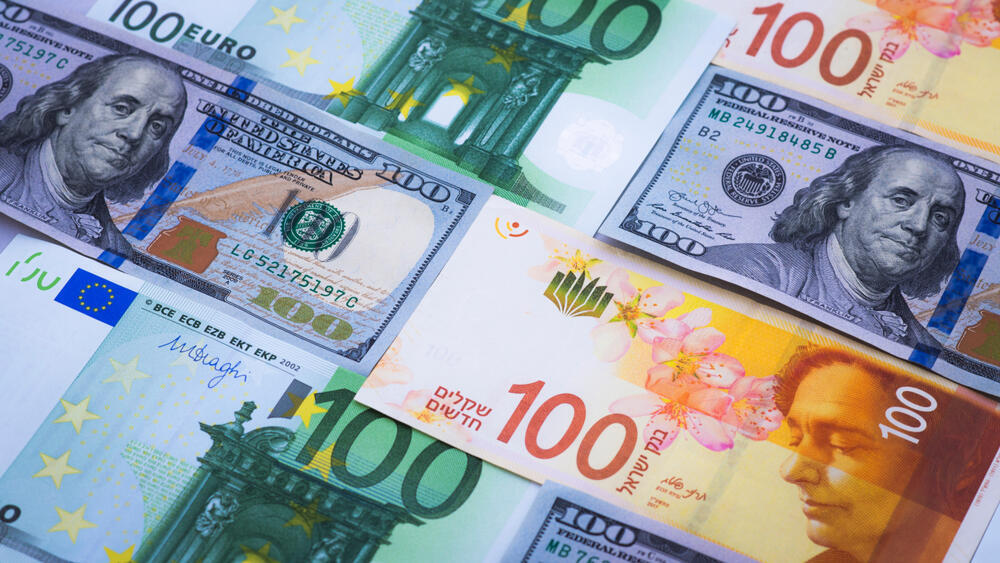The Tel Aviv Stock Exchange fell on the backdrop of security tensions. The Tel Aviv 35 index fell by about 1.72% and the Tel Aviv 125 index fell by 1.6% on the last trading day of the week.
Bank rates were cut by 3%, TA-Insurance & Financial Services Index fell by 2%, real estate retreated by 1.7% as well as Tel Aviv Oil and Gas, which fell six days in a row despite a weekly increase in global oil prices.
Despite the increase in threats from Iran and the lack of progress in the hostage deal, the shekel strengthened on Thursday against the dollar after several days of weakening against the main currencies. The dollar weakened by 0.4% and its representative rate was set at 3.716 shekels. The euro fell earlier by 0.3%, but then it moved to slight increases against the shekel and its representative rate was set at 4.0348 shekels.
Experts in the foreign exchange market tried to explain to Ynet the reasons behind the unusual volatility in the foreign exchange market, which has been going on since the beginning of the war.
Yossi Frank, CEO of Energy Finance, told Ynet: "The weakening of the shekel in recent days is nothing more than another wave, the fourth since the beginning of the year, which is completely disconnected from the economy and normal trade. This wave benefits from the tailwind of the fall of the stock market in the U.S., the strengthening of the dollar around the world and of course the warming of the sector and the fear of an Iranian response to the assassination in Syria. At the same time, 'estimates' of interest rate reductions in Israel are being published, estimates that are completely disconnected from reality because, in my opinion, no one at the Bank of Israel dreams of reducing interest rates in view of what is happening in the exchange rate and in view of the latest developments in the U.S., which push back the date of the interest rate reduction there.
"As soon as the wind changed direction the stock markets went up and the dollar weakened globally, starting with the realization of profits and therefore the shekel strengthened this morning. If there is no Iranian reaction at the end of the week that will cause a significant escalation, the shekel is expected to continue to strengthen."
Yossi Freiman, CEO of Freeco Risk Management, Financing, and Investments told Ynet: "Awake activity on the part of exporters, who were required to sell foreign currency in order to pay wages and taxes in shekels, led to the appreciation of the shekel, as well as the stabilization of the stock markets. The dollar weakened toward the level of 3.7 shekels. However, against the background of the uncertainty and the fear of unusual events on Friday, which is the Iranian Jerusalem Day, the potential for the appreciation of the shekel remains limited."
Ori Greenfeld, chief economist and strategist at Agam Leaderim, told Ynet: "The dollar weakened a little against the shekel this morning as part of the global trend of the weakening of the dollar. Despite the statements of some of the Fed officials that they will be patient before reducing the interest rate, the latest data published in the U.S. shows an easing of inflation and as a result the dollar weakened. Looking at the shekel, beyond the global events, Fitch's rating slightly supported the local currency, although we did not see a significant reaction in Israel's risk premium, which remains high.
"Looking ahead, there is no doubt that the high uncertainty will continue to affect the local currency, but one should also pay attention to a certain recovery recorded in the high-tech industry that can support the shekel over time."


